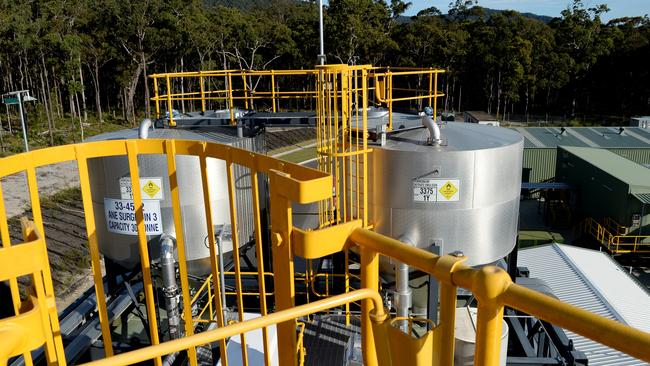New threat to Orica, Incitec as anti-dumping measures against Russian producers lifted
Australia’s explosives and fertiliser majors could face increased competition from Russian imports after the ditching of anti-dumping measures.

Australia’s explosives and fertiliser majors including Orica and Incitec Pivot could face increased competition from Russian imports after the federal government ditched long standing anti-dumping measures against ammonium nitrate imports.
The Friday decision by Industry Minister Christian Porter to lift punitive duties on Russian ammonium nitrate after twenty years, calls time on what is believed to be Australia’s longest standing anti-dumping action.
The move was vigorously opposed by Australian manufacturing majors Orica, Wesfarmers-owned CSBP and Queensland Nitrates, a joint venture between CSBP and Incitec Pivot’s Dyno Nobel explosives division.
The previous measures helped suppress Russian exports to Australia to only 30,691 tonnes in the 2018 to 2019 financial year and 5478 tonnes in 2019 to 2020, but their removal comes at a tricky time for east coast manufacturers who are still brawling with gas producers over the local cost of natural gas – the key input needed to make ammonium nitrate – and struggling with issues in their own businesses.
Orica and Incitec were both marked down by the market this month after poor half-year financial results, with earnings at Orica diving 44 per cent and Incitec net profit down 54 per cent compared to the first half of the last financial year.
In submissions to the federal government’s Anti-Dumping Commission, the three companies argued the duties should be extended on the basis that Russian government controls over gas prices offered Russian producers a competitive advantage over the local industry.
In 2019, their submission said, Russian companies produced about 20 per cent of the world’s technical ammonium nitrate, used to make explosives, and 35 per cent of fertiliser grade ammonium nitrate.
If dumping duties were removed, they argued, Russian manufacturers could again dump excess ammonium nitrate into the Australian market at a discount, damaging their own businesses and the Australian manufacturing sector.
Mining major Glencore was the most vocal opponent of their arguments, telling the Anti-Dumping Commission that Australian suppliers – who themselves also the major importers of ammonium nitrate from Russia – dominate the local explosives market.
“The only source of competition is from imports, which are a fraction of that market. Anti-dumping measures are not intended to protect the Australian industry from the spectre of competition and nor should they be used to enshrine historic profit margins,” Glencore said in its submission.
“Glencore believes the continuation of these measures on the basis of the specious, ultimately re-trodden arguments put forward by the Australian industry would be harmful to Australia’s reputation as a modern and open economy and would call into question the contestability of the Australian ammonium nitrate market by any non-Australian producer.”
In recommending the duties be lifted, the Anti-Dumping Commission said it recognised the decision could allow Russian exporters to sell low cost ammonium nitrate into the Australian market, unfairly damaging local manufacturers, but it believed freight costs between Russian ports and Australian would help minimise the threat.
“Excluding Australian industry imports, total imports of ammonium nitrate from Russia have remained at very low volumes since 2018, representing less than half of one per cent of the Australian market,” the commission said.
“The Commission is satisfied that exports of ammonium nitrate are likely to continue or recur on a spot sale basis, which forms approximately 5 per cent of sales in the Australian market.”
“The Commission accepts that, should the measures be allowed to expire, it is possible for Russian ammonium nitrate to be exported to Australia in the future and materially injure Australian industry. However, the Commission is not satisfied on the evidence before it that this is likely.”
The Anti-Dumping Commission has also previously imposed anti-dumping measures on ammonium nitrate exported from China, Sweden and Thailand.
Wesfarmers chemicals and fertilisers boss Ian Hansen said the decision made by Mr Porter to lift the import duties was “disappointing”.
“We are aware of the decision by the Minister to cancel certain anti-dumping measures in relation to Russian ammonium nitrate, which is a disappointing outcome for an important domestic industry,” he said.
“We will now take some time to consider the decision, including its implications for our ammonium nitrate businesses in Western Australia and Queensland.”
A spokesman for Orica said the company was reviewing the decision and would consider its options.
Orica shares closed up 19c to $13.70 on Monday, with Incitec down 1c to $2.35 and Wesfarmers up 52c to $54.73.



To join the conversation, please log in. Don't have an account? Register
Join the conversation, you are commenting as Logout